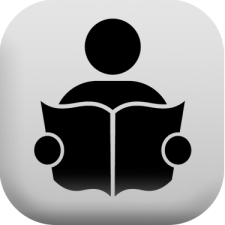Performing Arts
The courses taught within each Key Stage are outlined below. If you have any further queries, please email the appropriate head of subject.
Their email addresses are:
Please note that these email addresses are not monitored daily but we will endeavour to reply within 3 working days.
Drama Curriculum Intent
We believe that learners should discover that Drama, like all arts, helps us to make sense of ourselves and the world.
The department aims to provide an environment for all learners to:
- Experience Drama as an art, a practical activity and an intellectual discipline
- Be provided with an opportunity to work creatively
- Be provided with an outlet for self-expression
- Develop physical and vocal skills, understanding and control
- Develop self-confidence and belief
- Gain the skills needed for working as part of a group and realise the need for awareness and consideration of others
- Explore a range of work that reflects the diverse world in which we live
- Develop critical thinking and problem solving skills
- Recognise the transferable skills they are developing and how these relate to the world outside the drama classroom
- Enjoy themselves
KS3 Drama
Course Overview
In key stage three students are introduced to a variety of different dramatic stimuli, forms and techniques. The curriculum is designed to give all students access to a broad range of different ideas and concepts that give them the confidence to respond imaginatively to the world around them and to communicate this understanding effectively to an audience.
As well as developing performance skills and understanding of drama as an expressive art we also aim to develop a variety of broader skills that are invaluable in the modern world. We aim to make our students confident communicators, imaginative thinkers, creative problem solvers and effective members of a team.
Assessment
Year 7 Units of Work
- Unit 1 - Introduction - An introduction to basic skills and dramatic forms such as role play and still images
- Unit 2 - Improvisation - Unit 2 expands upon the skills introduced in unit 1, focusing on the importance of improvisation both spontaneous and prepared
- Unit 3 - The Cottingley Fairies - An exploration of the characters involved in the publication in the 1920s of The Cottingley Fairy photographs and their motivations. The unit also explores the themes of truth and lies
- Unit 4 - Atmosphere & Mood - This unit focuses on the development of movement, mime and gesture in performance. The unit uses an ancient ritual as a stimulus and encourages students to use both performance and design skills to create a specific atmosphere
- Unit 5 - Two Weeks with the Queen - An exploration of a play text. Students explore characters, situations themes and issues from the play as well as developing skills relating to the staging of a scripted piece
- Unit 6 - Evacuees - Unit 6 utilises a thematic approach to the creation of drama. Students explore the experiences of children evacuated during the Second World War and create and perform their own devised piece based on the theme
Year 8 Units of Work
- Unit 1 - Devising - Students work as a group to create and script an original piece of theatre. The unit includes exploring working non-naturalistically and the use of theatrical design and technical elements to communicate meaning.
- Unit 2 - The Exam - Students study and practically explore The Exam a play by Andy Hamilton. In the unit students work on plot, character, theme and practical approaches to staging a piece of script.
Year 9 Units of Work
- Unit 1 - Joyride - In this unit a short but complete play is studied. This builds on the work done in year 7 & 8 looking at script and explores more complex aspects of effectively staging a piece of text.
- Unit 2 - Gangster Bar - Students use 1930’s New York and the music of the era to create a piece that focuses on movement and gesture rather than language as a means of communicating effectively with an audience.
“Like theatre, drama in schools can unlock the use of imagination, intellect, empathy and courage. Through it, ideas, responses and feelings can be expressed and communicated. It carries the potential to challenge, to question and to bring about change.”
Jude Kelly (Theatre Director)
KS4 Drama
Course Overview
In GCSE Drama we follow the Eduqas specification. The course is made up of the three components outlined below:
Component 1: Devising Theatre (Non-exam assessment: internally assessed, externally moderated - 40% of qualification)
Students participate in the creation, development and performance of an original piece of devised theatre using either the techniques of an influential theatre practitioner or a genre. The piece is created in response to a stimulus set by the exam board. Students can be assessed as either a performer or a designer (set, lighting, costume etc.).
Students are assessed on the final performance of the devised piece in front of an audience. Students must also produce a portfolio of supporting evidence that demonstrates the process that individuals have gone through to create the performance and a written evaluation of the final performance or design.
Component 2: Performing from a Text (Non-exam assessment: externally assessed by a visiting examiner - 20% of qualification)
In this component students study two extracts from the same play. Any play can be chosen except those that are set texts for component 3, have the same playwright as the play chosen for component 3, are from the same time period as the play chosen for component 3 or any play that has a similar theme to the component 3 text (see table below). The chosen play must be a full length, professionally published play.
Students create and develop a performance using material from both of the two selected extracts.
All of the assessment for this component is on the final performance in front of the examiner.
As with component 1, students can be assessed as either a performer or a designer.
Component 3: Interpreting Theatre (Written examination: 1 hour 30 minutes - 40% of qualification)
This component requires students to demonstrate their knowledge and understanding of how drama and theatre is developed and performed through the study of a performance text and through responding to live theatre.
Section A: Set Text
A series of questions on one set text from a choice of five:
|
Component 3 text |
Selection of Component 2 text Playwright, time period and theme which must be avoided |
|---|---|
|
The Tempest (1611) |
Playwright: Shakespeare Time period: 1590 - 1625 Theme: Loss, autocratic power and reconciliation |
|
The Caucasian Chalk Circle (1944) |
Playwright: Brecht Time period: 1930 - 1955 Theme: Political oppression and resistance |
|
Hard to Swallow (1989) |
Playwright: Mark Wheeller Time period: 1980 - 2000 Theme: Anorexia and social pressures on teenagers |
|
War Horse (2007) |
Playwright: Nick Stafford Time period: 2000 - 2020 Theme: Courage in the face of the atrocities of war |
|
DNA (2007) |
Playwright: Dennis Kelly Time period: 2000 - 2020 Theme: Teenage gangs and the social pressures underlying them |
Section B: Live Theatre Review
One question, from a choice of two, requiring analysis and evaluation of a given aspect of a live theatre production seen during the course.
The first two terms of Year 10 focus on the development of the skills required for components 1 and 2. Many of the performance skills required cross over the two components and we look at a roughly equal amount of devised and scripted work. We will also learn about how to write effectively about the work you have created. This is done throughout the first two terms on a variety of the practical work you create. Specific areas of study are:
- Interpreting a stimulus
- Approaches to creating devised theatre
- Utilising practitioners and genres
- Interpreting a text
- Staging a text
- Developing and communicating character
- Making effective use of rehearsal
In the final term of year 10 you will embark on the creation of the piece for component 1. At the same time work will begin on section A (set text) of component 3
In term 1 of year 11 you will complete and perform your component 1 devised piece and by the end of this term we will aim to complete the portfolios and the evaluations
At the same time we will continue to study and explore the set text as well as move on to work on section B of component 3*
In the second term of year 11 work will begin on preparing and rehearsing your performance for component 2. This performance will take place at the end of term 2 or the beginning of term 3.
As we move into term 3 our focus will move to revision and preparation for the component 3 written exam.
*The exact timing of work for Section B can vary depending on when we visit the theatre.
How to Help
- Talking to students about the work they are creating for components 1 & 2 and the impact they intend it to have can help them to develop a more mature approach to subject matter and help to ensure clarity of communication with an audience.
- Attend any performances (we endeavour to make all of the assessment performances open to parents & carers where possible)
- Go to the theatre. The wider range of theatrical experiences students have the better as this may directly influence and inspire the work they create.
- Help with line learning - whilst the ability to learn lines is not assessed, the sooner a student is ‘off book’ the more productive and beneficial rehearsal becomes. This will more than likely result in a performance that is worthy of higher marks
Useful Links
KS5 Drama & Theatre
Course Overview
At A Level we follow the Edexcel specification. As with the GCSE, the course is made up of three separate components.
Component 1 - Devising (40% of the qualification)
- In this component you will devise and perform an original piece of theatre
- You will use a piece of text and a theatre practitioner as your stimulus
- There is a free choice on both text and practitioner.
- You can work as a performer or a designer
- Internally assessed and externally moderated
- You are assessed on your performance in the final piece (or your design realisation) and a portfolio that documents the process you went through. This can be written, verbal (recorded) or a combination of the two
Component 2 - Text in Performance (20% of the qualification)
- In this component you will perform a key extract from a text as part of a group
- You will also perform a monologue/duologue from another text
- Design options are available for this component
- You have a free choice of text
- You are assessed on your performance and the completion of a written performance/design realisation
- This component is assessed externally by a visiting examiner
Component 3 - Theatre Makers in Practice (40% of the qualification)
- In this component you will study two complete texts and a variety of live theatre
- Currently the texts we study are That Face by Polly Stenham and Hedda Gabler by Henrick Ibsen
- Texts will be studied practically in lessons
- Component 3 is assessed through a written exam
- In the exam you will answer questions on the staging and interpretation of the set texts from the point of view of director, performer and designer
- There is also a question that requires you to analyse and evaluate a piece of live theatre that you have seen during the course
During the first term of year 12 you will focus on developing the skills required for component 1. You will learn about various theatre practitioners in order that you can make an informed choice when you decide which practitioner to use for your component 1 piece in year 13. You will also take part in the creation of a piece with similar requirements to the component 1 piece and through this learn about the variety of ways in which devised work can be approached. You will also learn about the best approaches to the portfolio and have the opportunity for this work to be assessed.
In the second term the focus moves to components 2 and 3. Work begins on the practical aspect of the year 12 exam which is the selection, rehearsal and performance of a monologue or duologue. At the same time we begin to study the first of the set texts and learn how to effectively communicate understanding of the text and ideas for the performance of it through your writing. In lessons much of the work is practical and we explore a range of ways in which the playwright's ideas can be communicated through both performance and design. As well as your performance there is also a written exam in year 12 using the set text we have been studying.
Following the year 12 exam preparation work begins on your component 1 piece with decisions about the choice of text extract and practitioner being made before the end of the year. Work on the first set text should be completed by the end of year 12.
In the first term of year 13 work continues on the component 1 devised piece. In this term we also make decisions about text for component 2. Once this decision is made and groups are assigned the text is cut and the plays cast. You then have 4-6 weeks to learn lines. Depending on the progress made, the component 1 performance may take place in this term. Either way work begins on writing up the portfolio.
Work on the second set text for component 3 takes place throughout year 13.
Term 2 focuses on rehearsals and preparation for the component 2 performance. The assessment for this takes place in March. Following this assessment the component 1 performance takes place (if it wasn’t completed in term 1), portfolios are completed and submitted and revision begins for the component 3 written exam.
Work on Section A (live theatre evaluation) for component 3 can take place at any time as this will depend on what we see at the theatre and when. There would normally be a number of theatre visits in both year 12 and 13.
How to Help
- Talking to students about the work they are creating for components 1 & 2 and the impact they intend it to have can help them to develop a more mature approach to subject matter and help to ensure clarity of communication with an audience.
- Attend any performances (we endeavour to make all of the assessment performances open to parents & carers where possible)
- Go to the theatre. The wider range of theatrical experiences students have the better as this may directly influence and inspire the work they create.
- Help with line learning - whilst the ability to learn lines is not assessed, the sooner a student is ‘off book’ the more productive and beneficial rehearsal becomes. This will more than likely result in a performance that is worthy of higher marks
Useful Links
Music Curriculum Intent
The music curriculum at the South Wolds Academy is designed in a way for students to foster a passion and enthusiasm for music by developing practical and theoretical skills to enable students to perform, compose and listen to a broad range of musical styles and genres from around the world and from throughout the last four hundred years. Some of the styles and genres explored range from Rap, Rock, Jazz to Baroque.
The South Wolds Academy Music Curriculum ensures that students from all abilities and backgrounds are able to access it and develop the skills and knowledge required to be successful. We offer a multitude of extra-curricular activities catering for experienced instrumentalists, as well as for those who are accessing music for the first time alongside opportunities to get involved with instrumental lessons, (including subsidised pay for disadvantaged students) trips and concerts which celebrate enthusiasm, inclusion and a passion for music.
The Music Curriculum equips students with the skills and knowledge to pursue music further either inside or outside of the classroom, whether that journey continues from KS3 to KS4 and onwards to KS5 with an emphasis on the careers and jobs that are available to students within the music industry for when they leave the South Wolds Academy.
KS3 Music
Course Overview
Pupils study music throughout KS3 and in year 7 have one hour per week, in year 8/9 they receive 4/5 hours a fortnight respectively but rotate every 6-7 weeks with Art and Drama. KS3 music covers a broad range of music with a focus on performing, composing and appraising/listening to music in an analytical and theoretical way to help develop a deeper understanding of music. These three components are also the basis of GCSE Music if students choose to continue music once they have made their choices at the end of KS3.
In year 7 students will look at; Musical Elements (including an introduction to Melody, Pitch, Rhythm and Music Theory), Keyboard Skills, Chinese Music, Ukulele and Singing, Indian Music and Music Technology.
In year 8 students will look at; Samba, Blues, Reggae, Rap.
In year 9 students will look at; Pop Music/Britpop, Film Music, Composing for Adverts, Group Performance.
The majority of lessons are inherently practical with a focus on playing keyboard/ukulele and percussion instruments as well as an emphasis on recording using music technology on the computers with a program called Reason 8.
Students are expected and encouraged to perform to each other in order to nurture and develop confidence, ability and resilience. Students will be able to work independently/in pairs and at times in groups depending on the nature of the topic.
Students are given verbal feedback and are made aware of the assessment criteria in music in order to know where they are working at and how to improve. Assessments are done at the end of each topic with an emphasis on peer and self-assessment facilitated by the teacher.
We also have a vast array of extra-curricular clubs and activities in music to cater for people with all different musical tastes and abilities, these include, Steel Pans, Jazz Band, Rock School and Choir as well as having several music rooms available for students to use at lunchtimes. We host Christmas and Summer Concerts as well school productions in order for students to showcase their musical talents.
How to help
We offer private instrumental tuition at South Wolds in guitar, drums, piano, singing, woodwind, strings and brass. Learning to play a musical instrument can be enriching for students as well as enhance confidence, focus and ability which can lead to positive outcomes across all subjects and other aspects of life.
Listening to music at home is vital in developing an understanding of music and where possible your child should be encouraged to listen to a wide variety of music from all different genres/styles and time periods.
Even better is the experience of watching a live musical performance, whether that be a local band, orchestral concert or a touring musical theatre production, hearing live music is a vital part of your child’s development. There are also some fantastic online music applications that help to develop a child’s knowledge of music by exploring areas such as musical instrumentation, how to identify and recall musical sounds, composing their own music. See the links below for some examples.
Useful Links
- Musescore - A website with an emphasis on composing and learning music using traditional musical notation.
- Soundation - A useful site for music technology and for those who might have a passion for dance music as well as budding DJs.
- Music theory - Useful for those who may wish to continue their music studies at GCSE.
- BBC Bitesize - Another useful site that breaks down the elements of music and a look at performing, composing and appraising music.
KS4 Music
Course Overview
GCSE music is all about studying three parts; performing, composing and analysing music/music theory. It currently takes place as a twilight session after school for 2 hours a week. The examining body is: WJEC Eduqas GCSE Music
Unit 1: Performing Music – 30% of final grade
For the majority of students this is the main reason for taking GCSE music, this is all about developing your abilities as a musician and performer; be it as a guitarist, singer, drummer, violinist, saxophonist or rapper. You don’t necessarily have to play a specific instrument to join the course but you will ultimately need to specialise in an instrument or sing/rap to complete the course as you will need to perform two pieces of music on an instrument which you will be assessed on. The more adept you are at your instrument the better grade you will receive. It will be advisable to receive instrumental lessons either inside or outside of school for this unit and you will be expected to rehearse in your own time.
Unit 2: Composing Music – 30% of final grade
Composing music is all about creating and writing your own music/songs and emphasises the creative aspect of music. There are many different approaches to composing music, traditionally this was done using a pencil and manuscript paper and writing musical notation. However, this can also take the form of song writing, either by writing some lyrics and devising a few chords on a piano or guitar and singing over the top of it. The programs often used at South Wolds are Reason 8 which is similar to Garage Band or Sibelius 7 which is musical notation software which can play the music back to you.
Unit 3: Listening and Appraising – 40% of final grade
In this unit students develop their listening and appraising skills through the study of music across a variety of styles and genres. The content for the unit is grouped into four Areas of Study each of which contains two set works. The four Areas of Study are: Instrumental Music 1700 – 1820; Vocal Music; Music for Stage and Screen; Popular Music and Fusions. This unit encompasses many elements of music theory as well as giving the students the understanding of how to analyse the musical features of songs/music from lots of different time periods and genres.
- Unit 1: One solo performance and one ensemble (group performance) worth 30% of the final marks
- Unit 2: Two compositions worth 30% of the final marks
- Unit 3: Listening exam at the end of the second year worth 40% of the final mark
How to Help
We offer private instrumental tuition at South Wolds in guitar, drums, piano, singing, woodwind, strings and brass. Learning to play a musical instrument can be enriching for students as well as enhance confidence, focus and ability which can lead to positive outcomes across all subjects and other aspects of life. It is advisable for GCSE students to pursue instrumental lessons either inside or outside of school.
Listening to music at home is vital in developing an understanding of music and where possible your child should be encouraged to listen to a wide variety of music from all different genres/styles and time periods.
Even better is the experience of watching a live musical performance, whether that be a local band, orchestral concert or a touring musical theatre production, hearing live music is a vital part of your child’s development. There are also some fantastic online music applications that help to develop a child’s knowledge of music by exploring areas such as musical instrumentation, how to identify and recall musical sounds, composing their own music. See the links below for some examples.
Useful Links
- Musescore - A website with an emphasis on composing and learning music using traditional musical notation.
- Soundation – A useful site for music technology and for those who might have a passion for dance music as well as budding DJs.
- Music theory – Useful for those who may wish to continue their music studies at GCSE.
- BBC Bitesize – Another useful site that breaks down the elements of music and a look at performing, composing and appraising music.
KS5 Music (A Level)
Qualification studied for: A Level
Length of course: Two years
Examining body: WJEC/Eduqas
A level music follows a similar pattern to GCSE music at a more advanced and academic level. It is essentially broken into three sections; Performing music; Composing music; Appraising/analysing music. The performance and composition aspect are part of coursework for A level music and students will need to perform on their specialised instrument to a visiting examiner in a recital. They will need to submit their compositions towards the end of the course and the appraising aspect will take the form of an exam at the end of the course. Students can also choose whether they want to specialise in performing or composing music and can select which area of study they would like to specialise in with regards to the appraising aspect. All students must study Area of study A: Western Classical Tradition. Further details of what these Areas of study entail are below.
What will I study and how will I be assessed?
Learners must choose either Option A in Components 1 and 2, or Option B in both Components 1 and 2.
Component 1: Performing – Options A or B
Non–exam assessment: externally assessed by a visiting examiner.
- Option A (35%) Total performance duration: 10–12minutes
- Option B (25%) Total performance duration: 6–8 minutes
Component 2: Composing – Options A or B
Non-exam assessment: externally assessed by WJEC Eduqas.
- Option A (25%) Total duration of compositions: 8 – 10 minutes
- Option B (35%) Total duration of compositions: 4 – 6 minutes
The written examination (40%) focuses on three areas of study.
- Area of study A: The Western Classical Tradition covering The Development of the Symphony, 1750 – 1900.
The second area of study is selected from:
- Area of study B: Rock and Pop (1960-2000)
- Area of study C: Musical Theatre (Rodgers, Bernstein, Sondheim Schonberg, Lloyd Webber and Schwartz)
- Area of study D: Jazz (1920-1960)
The third area of study is selected from:
- Area of study E: Into the 20th Century
- Area of study F: Into the 21st Century
Career paths:
Students completing A Level Music could go on to study music or another subject at university or music college. They could also go directly into employment in various jobs within the music industry. A Level Music offers a wide range of transferable skills into a wide range of other employment routes.
How to Help
We offer private instrumental tuition at South Wolds in guitar, drums, piano, singing, woodwind, strings and brass. Learning to play a musical instrument can be enriching for students as well as enhance confidence, focus and ability which can lead to positive outcomes across all subjects and other aspects of life.
Listening to music at home is vital in developing an understanding of music and where possible your child should be encouraged to listen to a wide variety of music from all different genres/styles and time periods.
Even better is the experience of watching a live musical performance, whether that be a local band, orchestral concert or a touring musical theatre production, hearing live music is a vital part of your child’s development. There are also some fantastic online music applications that help to develop a child’s knowledge of music by exploring areas such as musical instrumentation, how to identify and recall musical sounds, composing their own music. See the links below for some examples.
Useful Links
- Musescore - A website with an emphasis on composing and learning music using traditional musical notation.
- Soundation – A useful site for music technology and for those who might have a passion for dance music as well as budding DJs.
- Music theory – Useful for those who may wish to continue their music studies at GCSE.
- BBC Bitesize – Another useful site that breaks down the elements of music and a look at performing, composing and appraising music.
KS5 Music (BTEC Level 3)
Qualification studied for: BTEC Level 3
Length of course: Two years
Examining body: Edexcel
Entry requirements to this course: GCSE/BTEC Level 2 in Music. Applications from students without these qualifications will be considered if students have a good level of musical ability on an instrument or voice.
What will I study?
There are different courses in this qualification depending on your interests. These are performing, composing, music technology (events support), music technology (DJ technology) and music technology (production). There are a range of units to choose from which you can tailor to your abilities and interests.
How will I be assessed?
Assessment is entirely though coursework. Six units will be completed over two years.







